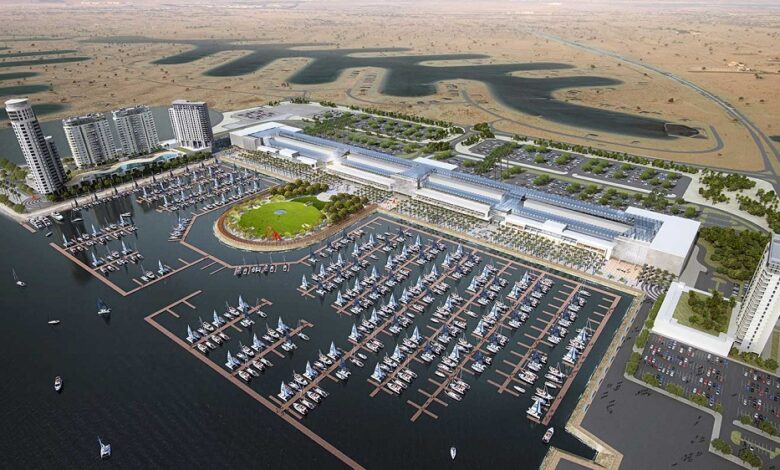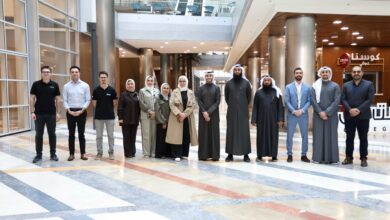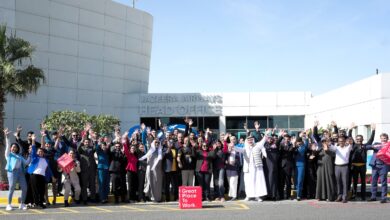Tourism, a cornerstone of economic growth

THE TIMES KUWAIT REPORT
Everyone one talks to in Kuwait, the public, the politicians, and policymakers agree that developing tourism is vital to boost economic growth and development of the country. There is also a similar consensus among people in the country that tourism in Kuwait has a long way to go to rival the many natural and constructed tourist attractions available in the region, especially in neighboring Gulf Cooperation Council (GCC) states.
For its part, the government emphasizes that developing tourism has the potential to support its economic, financial and social priorities, including driving economic diversification, encouraging greater private sector participation in the economy, and providing national cadre with gainful employment opportunities. With everyone in agreement that tourism is a vital sector, why has it remained mired in an obsolete ecosystem that is forever trying to catch-up with its regional peers?
One needs to look no further than the prevailing political instability to realize why investors and entrepreneurs have shied away from tourism investments in the country. Returns from initial investments in the tourism sector are usually spread over a decade or more; as such, sustained political stability is vital to attract both local and international tourism investments.
Coherent and consistent tourism programs and policies that are prioritized and supported by repeated governments in office are also critical to encourage investment in the tourism sector. Experts point to the persistent political instability and the absence of cogent tourism policies and strategies, as among the factors responsible for the current dismal state of tourism in Kuwait.
It is encouraging that the current government has indicated its support for reviving tourism, and especially its keenness to adopt the Gulf Strategy for Tourism. In February of this year, Minister of Information Abdulrahman Al-Mutairi — in his address to the eighth Gulf Cooperation Council (GCC) ministerial meeting on Tourism in Doha, Qatar — stated that the Gulf Arab states have the potential to transform into tourism hotspots that could attract visitors from across the globe.
Al-Mutairi pointed out that a coordinated pan-GCC tourism strategy aimed at developing the region’s tourism industry could help keep the number of tourist arrivals on an upward trajectory in the years ahead and benefit economies of the six-nation bloc. He went on to add that the tourism sector was a pivotal source of national income and that growth of this sector is a precursor to broader development of the economy and continued prosperity of the GCC states.
For his part, GCC Secretary-General Jasem Mohamed Albudaiwi, affirmed that the Council states had made significant progress in the tourism sector. In particular, he highlighted the decision by the GCC leadership at their 44th GCC Summit held in Qatar in December 2023 to approve a unified tourism visa scheme within GCC states. The unified visa will grant travelers entry to all six countries in the GCC block with a single visa.
The unified visa scheme, along with other policies in the broader Gulf Strategy for Tourism, which was adopted by the GCC tourism ministers at their meeting in Al-Ula, Saudi Arabia in November of 2022, is expected to boost the role of tourism as a driver of economic growth, and to create new investment opportunities in the tourism sector for the GCC as a whole, and for individual countries in the bloc.
The government’s commitment to boost tourism and catalyze economic development in the country was underlined in early March, when the Ministry of Information hosted the first Tourism Communication Conference. In his address to the gathering, Undersecretary of the Ministry of Information, Dr. Nasser Muhaisen, said that hosting the conference reiterates Kuwait’s belief that communication among all tourism stakeholders is important to activate partnerships and exchange regional and international experiences.
For her part, the Regional Director for the Middle East at the United Nations World Tourism Organization (UNWTO), Basma Al-Maiman, expressed optimism about the future of tourism in the region, especially among GCC countries. Pointing out that “the tourism sector in Kuwait is not new and has, since the 1960s, attracted visitors from across the region due to its tremendous potential”, she expressed confidence that tourism in Kuwait will witness steady growth in the coming years.
Al-Maiman added that her optimism stems from, “the strong government support for tourism, and the many initiatives, projects and proposals that support tourism-related work, as well as from the fact that tourism is an integral part of the New Kuwait 2035 development plan, which aims to transform Kuwait into a regional hub for commerce, finance and culture.
The government has also pursued other measures to enhance the tourism ecosystem. Early last year, Assistant Undersecretary for the Tourism Sector at the Ministry of Information, Saud Al-Khaldi met with the visiting Secretary-General of the World Tourism Organization, Zurab Pololikashvili, in the presence of the regional director of UNWTO, Basma Al-Maiman,
During their meeting, Al-Khaldi expressed Kuwait’s keenness to enhance cooperation with the UNWTO and discussed the use of the organization’s advisory expertise and studies to reorganize the tourism sector in Kuwait. He also proposed the establishment of tourism exhibitions in Kuwait, under the umbrella of the organization, on tourism products that are distinctive to Kuwait.
Al-Khalidi also explored the possibility of qualifying and training national cadres in the field of tourism and hospitality, activating tourism investment, as well as benefiting from the programs offered by the organization. The two sides also examined the possibility of classifying hotel establishments in Kuwait to meet the needs of guests, and adhere to latest global standards.
In other steps to invigorate the tourism sector, in particular to attract domestic tourism, the Council of Ministers assigned the National Council for Culture, Arts, and Letters (NCCAL) to rehabilitate heritage and historical buildings in Kuwait.
Since then, the NCCAL has been expediting the implementation of plans and programs to revive heritage buildings and sites in the country.
As part of this initiative, in mid-March the NCCAL unveiled a plan to transform over 100 historical and heritage buildings, including 51 historical mosques, the oldest of which dates back to the second half of the 1880s, into tourist attractions. The Council said it would intensify efforts to preserve heritage mosques and restore them in accordance with architectural principles.
The NCCAL has so far initiated restoration and maintenance work to preserve several schools of historical significance, and transform them into museums and cultural centers. The Council is also undertaking efforts to restore the American Hospital, the Sadu House and the Red Palace, as well as Sheikh Khazal Palace and the former National Museum.
While these measures are steps in the right direction, they are clearly not enough. To develop the tourism sector and attract global visitors, Kuwait will need to increase its international openness, invest more in tourism infrastructure and ground services, create an enabling environment, and enact policies that attract investments into the tourism sector.
Economists and tourism analysts note that promoting tourism helps boost a country’s economic growth and development. It helps create employment and fosters entrepreneurship in various sectors such as hospitality, transportation, retail, and recreation; and supports small and micro industries that produce local products and services that cater to tourism.
Given the relative importance of tourism to the overall economic development of the country, and knowing that many of the economic, financial and social plans and priorities of the country could be supported by developing a stable tourism sector, the incoming government will hopefully initiate positive tourism policies that promote a stable and sustainable tourism industry in the country.












